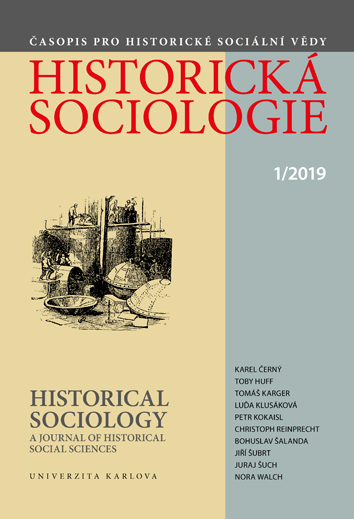Ujguři – starobylý národ, nebo produkt sovětské národnostní politiky?
Uyghurs – an Ancient Nation, or the Result of Soviet National Politics?
Author(s): Petr KokaislSubject(s): History and theory of sociology
Published by: Univerzita Karlova v Praze, Nakladatelství Karolinum
Keywords: Uyghurs; ethnogenesis; ethnic identity; constructivism; Soviet Union; Kyrgyzstan; Xinjiang
Summary/Abstract: The present article pursues two main objectives: to highlight the possibly unstable perception of belonging to a particular ethnic group and, through the example of the USSR, to show how state interventions facilitated the integration of different ethnic groups into a new Uyghur group. It will also explain how such interventions can facilitate assimilation or, conversely, act against it. Like other USSR nations, the Uyghur nation was constructed as the result of a political decision; however, the primordialist aspect has always been emphasised, according to which the nation should have existed forever. The Uyghur ethnonym, although adopted following a decision taken by Soviet power, became the designation of a large nation over subsequent decades and most Uyghurs now live outside the former USSR. The concept of a unified Uyghur nation was also adopted by both China and the Uyghur movement after World War II. Although the state has the means to construct a new nation, a number of other factors can change its efforts entirely; this is shown in the paper through the example of two Kyrgyz regions populated by the Uyghur minority.
Journal: Historická sociologie
- Issue Year: 11/2019
- Issue No: 1
- Page Range: 75-91
- Page Count: 17
- Language: Czech

